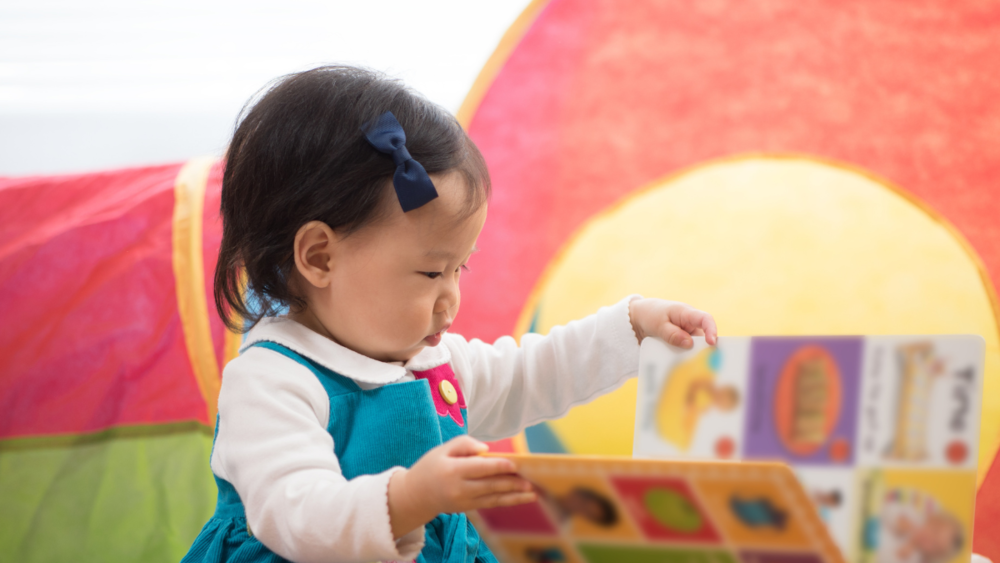
Section Branding
Header Content
Literacy All Around Us
Primary Content

When working with young children, teachers and caregivers carry an important responsibility for promoting literacy development. Many factors contribute to building a strong foundation for reading and writing. We talk often about letters, words, and sounds. One of the best opportunities for fostering literacy is the environment. When thoughtful adults set up the space around young children in an intentional way, important literacy skills get supported. Some easy ways to use the environment to foster literacy are described below.
Books! Books! Books!
Offering age-appropriate books in several areas of the environment can be an easy way to promote interest in books and the process of reading. Young children can use books carefully placed in specific areas of the classroom to promote the use of books as references. For example, books about buildings and places in the block area can spark imagination for building structures and be referred to by children for ideas. Books about animals in the discovery area can be used to find out more information about an animal the children are interested in. In the home, adults can place interesting books in the family room with the covers facing out so the child will be more likely to select them as a source of fun and information. Fun books about food and eating can be placed in the kitchen.
Write Now
Writing tools spread around the environment in carefully planned ways can encourage written expression with young children. Thoughtfully placed clipboards with pencils around the room, or empty tissue boxes with small scrap paper stacks and crayons can be used to inspire writing about an experience or emotion. Planning notebooks in the block area can invite planning out and writing about what the children will build. Memo pads and pens in the dramatic play area can serve as makeshift ways to write “orders” when playing restaurant. Encouragement of writing about an emotional experience and having writing materials within reach is an easy way to foster developmental writing. In the home, parents can encourage children to write what they liked and did not like about a PBS show they watched, or they can be encouraged to write a thank you note to someone in the family for doing something helpful. When writing materials are around, children tend to use them, and adults tend to encourage their use.
Print Rich
Words are all around us in the world. These words send messages. Young children learn quickly that words have meaning and power. When they see them around the environment, they show interest in print. Classrooms and homes can provide an environment rich with print by hanging songs and poems with words and a picture as a visual reminder of the song or poem. Words on items can offer a way to promote interest in words and empower children to make the print connection when they learn that the word on the chair means chair. It is important not to overwhelm children by labeling everything but instead label sparingly and change up the items labeled from time to time. Picture and word cards showing where toys go back on the shelf allow the print to have meaning for children when cleaning up.
Adults can easily use the classroom and home environment to foster literacy skills through books, writing materials, and the use of printed words in ways that are intentional. The community also has many words and print all around. Take the time to indulge the interests of young children when they experience print. This will contribute to a foundation of literacy.
References
Diller, D. (2023). Spaces & places: designing classrooms for literacy. Routledge.
Guo, Y., Justice, L. M., Kaderavek, J. N., & McGinty, A. (2012). The literacy environment of preschool classrooms: Contributions to children's emergent literacy growth. Journal of research in reading, 35(3), 308-327.
Morrow, L. M. (1990). Preparing the classroom environment to promote literacy during play. Early Childhood Research Quarterly, 5(4), 537-554.
Vukelich, C., Enz, B., Roskos, K. A., & Kristie, J. (2019). Helping young children learn language and literacy: Birth through kindergarten.

Learn about the Georgia Association for the Education of Young Children (GAEYC) here.





